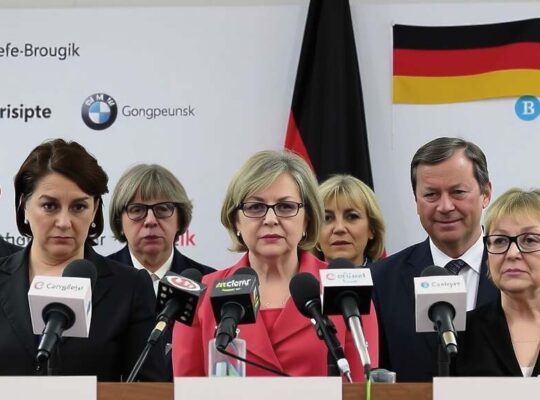A looming fiscal reckoning is shaping the relationship between the German federal government and its constituent states, raising fundamental questions about the division of responsibilities and financial burdens. An unpublished report from the Federal Ministry of Finance, recently obtained by “Handelsblatt”, reveals a substantial and growing commitment from Berlin, with projected financial support for states and municipalities expected to reach €117.6 billion by 2026 – a significant increase from the €115.1 billion disbursed in 2025.
This escalating federal involvement is fueling a tense negotiation between Berlin and the states, primarily concerning the cost allocation for legislative initiatives and policy changes. State governments are demanding compensatory payments from the federal government, particularly when policies like reduced value-added tax (VAT) for the hospitality sector or increased commuter allowances are implemented.
“The largest financial burdens in municipal budgets currently stem from federal laws” stated Winfried Kretschmann, Minister President of Baden-Württemberg, highlighting the growing frustration amongst state leaders. He emphasized the need for transparency and accountability regarding who ultimately bears the cost of federal policy decisions. The implicit message is clear: Berlin cannot simply impose new mandates without providing adequate funding to support their implementation.
The sentiment is echoed by Alexander Schweitzer, Minister President of Rhineland-Palatinate, who pointed to the precarious financial situation faced by many municipalities. Schweitzer argues that states are often tasked with implementing new legal frameworks or meeting higher standards without being provided with sufficient financial resources. “If the federal government orders it, it must also pay adequately” he asserted.
While the report acknowledges the significant existing federal support – including an additional €16.8 billion in VAT revenue for states since 2005, €13 billion for accommodation costs and €12.25 billion for basic security in old age and disability – critics contend that this existing framework is failing to adequately address the escalating financial pressures on regional and local authorities. The central debate now revolves not around whether the federal government provides “some” support, but whether that support is sufficient, predictable and distributed fairly. The potential for increased intergovernmental friction and a re-evaluation of Germany’s fiscal federalism appears increasingly likely.












